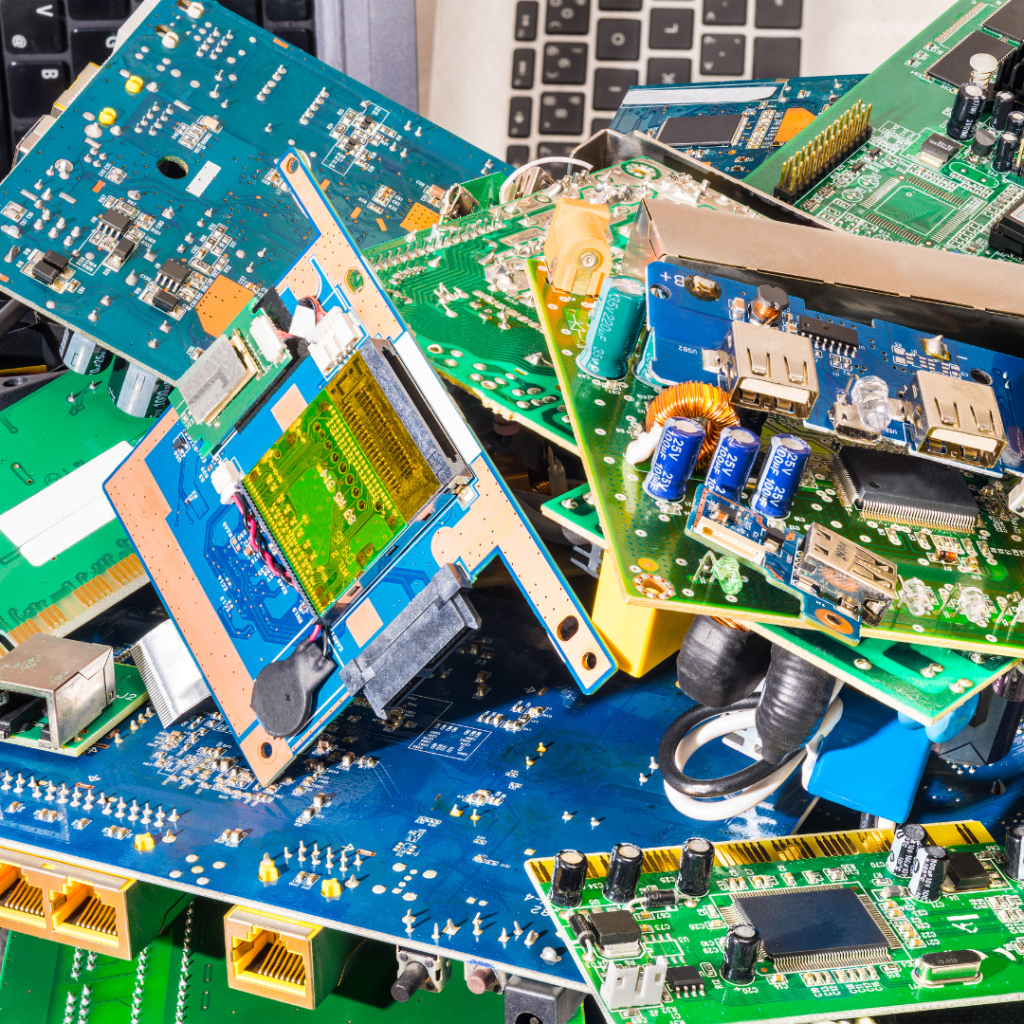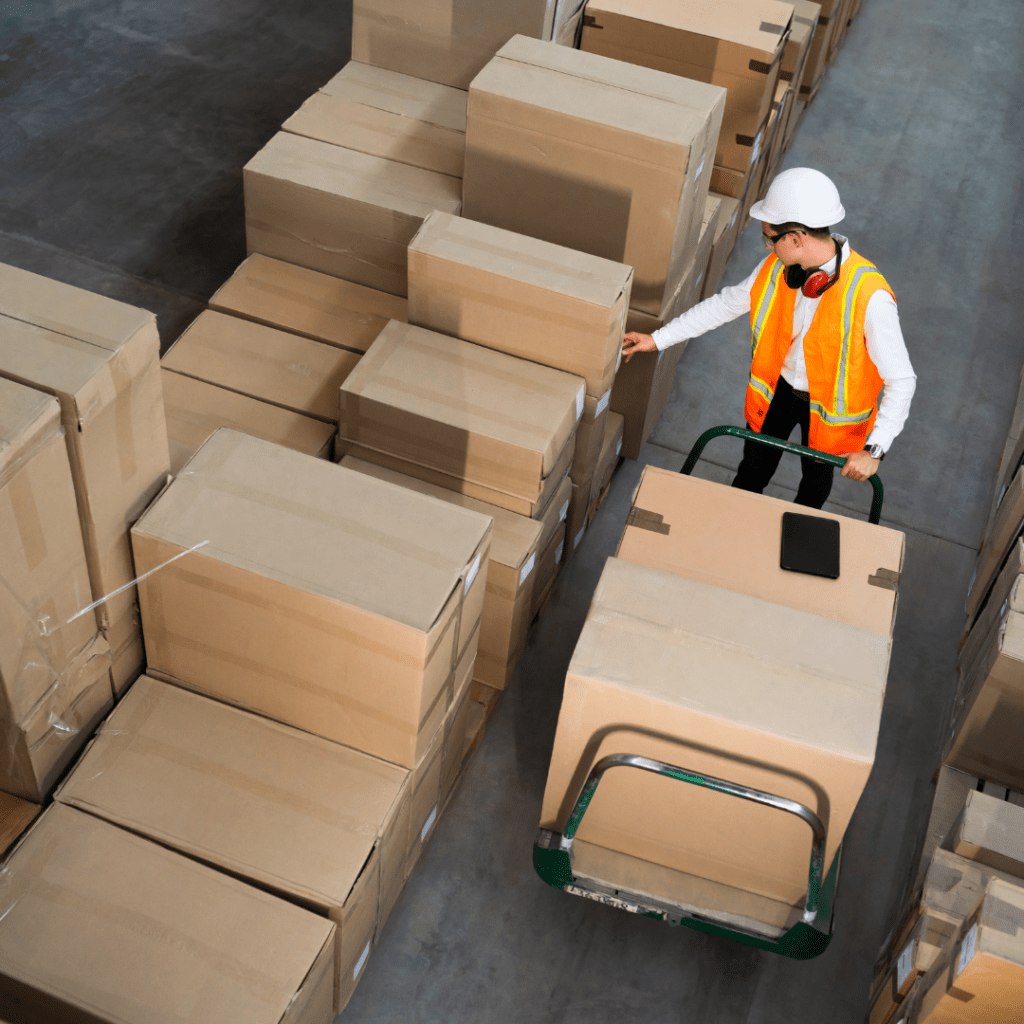Emerging Technologies That Boost E-Waste Recycling
By now, most of us are familiar with the term e-waste. According to the WEEE Forum, we generate more than 62 million tonnes of electronic waste every year. Old computers and smartphones are just the tip of the iceberg. Solar panels, medical devices, vapes, appliances, and children’s toys are also included in electronics recycling.
Because e-waste, aka waste electrical and electronic, is a type of hazardous waste, throwing it away without proper treatment can have disastrous effects on the environment. To prevent such pollution, governments around the world are focusing on recycling. The good thing about e-waste is that it’s made up of valuable, highly sought-after materials. Recycling can help us recover these critical raw materials and give them a second life.
Innovative E-Waste Recycling Technologies
Using Organic Chemistry to Extract Gold From E-Waste
In December 2024, scientists from Cornell University published a groundbreaking study that could change e-waste recycling forever. In the study, Dr. Amin Zadehnazari and his research team developed a method to extract 99.9% of the gold from electronics using an organic, non-toxic compound. This compound is known as a VCOF (vinyl-linked covalent organic framework).
VCOFs are porous, meaning they can absorb things from the environment. When the scientists placed the VCOFs in contact with circuit boards, they were able to pull out nearly all traces of the gold inside without affecting the other metals. Once the molecules had absorbed all the gold from the e-waste, they became even more useful.
A VCOF loaded with recycled gold can be used to clean up the environment even more. In the Cornell experiment, scientists found that gold-loaded VCOFs can convert carbon-dioxide into natural acids. This revolutionary process could help us tackle e-waste and air pollution at the same time.
AI That Hunts for Batteries and Circuit Boards
One of the biggest challenges we face when recycling e-waste is its complexity. Electronics are made from many tiny components and lots of different materials. Separating each material into different recycling streams can be difficult, especially once the e-waste has been shredded. Many recycling plants use Near Infrared (NIR) technology to sort materials by shape, colour, and thickness.
While this technology does make sorting faster, it can also miss things and make mistakes. Last year, engineers from the UK built an e-waste sorting machine that uses artificial intelligence instead.
The team installed the device at the SWEEEP Kuusakoski e-waste recycling centre in England. It uses AI and machine learning to pluck pieces of circuit boards from a conveyor belt of crushed waste. The robot can also identify and remove batteries from the mix. Batteries are fire hazards in recycling plants, so picking them out before incineration is crucial.
Bacteria That Breaks Down Copper
Much of the e-waste recycling we do today requires chemical solvents and high temperatures. This can have unintended consequences for the environment. One solution to this problem is to use natural organisms, such as bacteria, to break down the metals in e-waste.
This process is called bioleaching. The mining industry has been using it to extract metal from rock for nearly a century. Now, recycling companies are putting it to the test. In 2023, researchers from Coventry University successfully used bacteria to recover copper and other metals from e-waste in partnership with English IT recycler N2S. The project won the team a Times Higher Education Award.
Bioleaching is a completely natural and non-toxic process with a much smaller carbon footprint than traditional e-waste recycling. In the last two years, this eco-friendly process has been picked up by many green tech and recycling startups worldwide.
An E-Waste Recycling App That Rewards You in Gold
Malaysia is a hotspot for e-waste trafficking due to its underdeveloped environmental policies and recycling infrastructure. The country is home to hundreds of illegal e-waste recycling facilities where informal workers burn and dismantle electronics in uncontrolled and unsafe conditions.
In 2019, entrepreneur Vimalan Arumugam saw an opportunity to do things better. The son of a waste picker himself, Arumugam knew the true value of unwanted electronics. In 2021, he launched Telcov, a licensed e-waste recycling business that runs off a mobile app and rewards people in gold bullion.
Anyone in Malaysia can download the Telcov app via the Google Play to start recycling e-waste and earning money. People can use the app to find drop-off points for e-waste or schedule a collection from their homes. They are paid by weight, which earns them points in the app. Points can be exchanged for certified gold and silver bars. So far, Telcov has recycled over 550 tonnes of e-waste worth over R10 million.
Rare Earth Element Recovery
Efficient and scalable solutions for extracting rare earth elements (REEs) such as europium, neodymium, and cobalt are now being deployed. Innovations include ionic liquid-based extraction methods and nature-inspired solvents, developed at institutions such as ETH Zurich and Queen’s University, that enable high-purity recovery from magnets and fluorescent lamps. These developments address supply challenges for industries reliant on these rare materials.
Blockchain Traceability and Environmental Analytics
Blockchain is increasingly being used for end-to-end tracking of materials throughout the recycling chain. This provides transparent, immutable records, ensuring ethical sourcing and verifying claims about recycled materials. Environmental analytics enabled by satellite monitoring, IoT sensors, and digital platforms allows real-time tracking of emissions, resource recovery, and compliance.
The amount of e-waste we produce continues to increase each year. Developing countries are going digital, and the demand for electronics is only growing. Now is the perfect time to start thinking about how we’re going to recycle these devices one day and, more importantly, how we can turn that into a profitable business.
The world of e-waste recycling is filled with opportunities for entrepreneurs. The stories above are just some of the clever ways people are using technology to build a greener world. In South Africa, we are seeing plenty of interesting partnerships that blend business and recycling. To join the movement and start recycling today, please get in touch.
SOURCES:
- https://news.cornell.edu/stories/2025/01/e-waste-gold-pathway-co2-sustainability
- https://www.thechemicalengineer.com/news/cornell-researchers-develop-win-win-method-for-upcycling-gold-from-electronics-waste-for-co2-conversion/
- https://www.techexplorist.com/turning-e-waste-gold/95304/
- https://www.recyclingtoday.com/news/recycleye-sweeep-kuusakoski-uk-electronics-recycling-machine-learning/
- https://waste-management-world.com/resource-use/sweeep-kuusakoski-and-recycleye-announce-a-first-in-ai-powered-weee-and-metals-sorting/
- https://www.fairplanet.org/story/electronic-waste-recycling-bacteria/
- https://vulcanpost.com/864742/telcov-malaysian-social-enterprise-e-waste-silver-gold-bullions/
- https://esmartrecycling.com/blog/predictions-for-technology-recycling-in-2025


